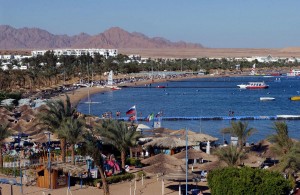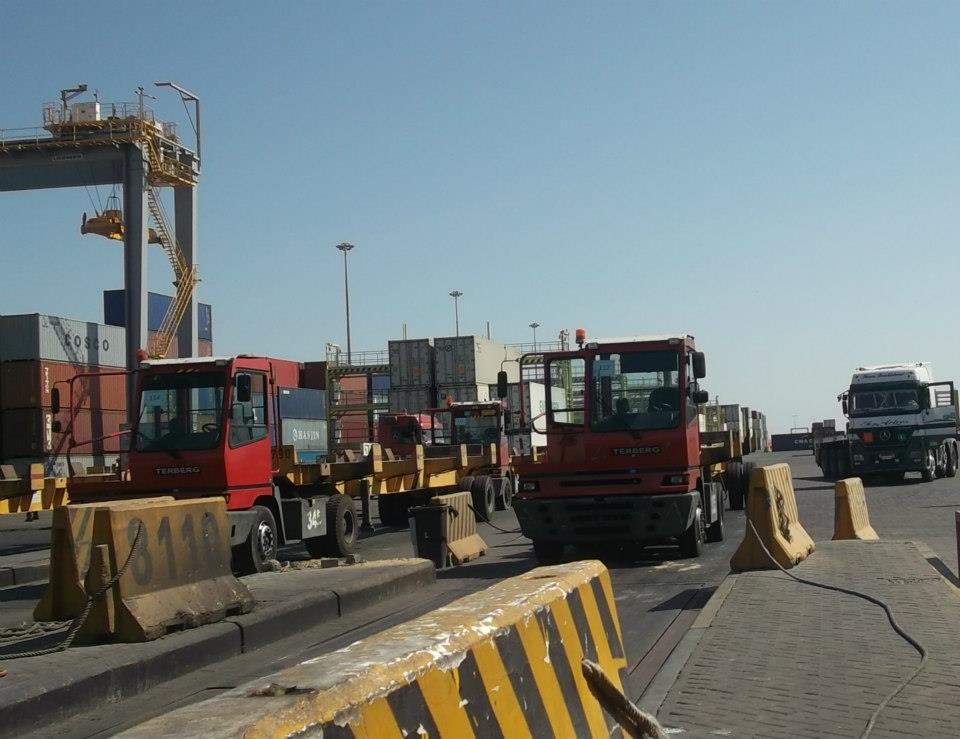
(AFP Photo)
The Nuweiba-Taba Tourism Investors Association has requested security checkpoints be intensified and surveillance cameras be installed in hotels and resorts as in Sharm El-Sheikh, according to an association official.
Surveillance cameras and security checkpoints were set up across Sharm El-Sheikh in cooperation with the Ministry of Interior and South Sinai governorate. However, checkpoints were not established in the Nuweiba-Taba area.
Hotel capacity in Nuweiba-Taba accounts for nearly 15,000 hotel rooms, with investments exceeding EGP 10bn, according to the official.
A tour bus was bombed in Taba last February, leading to the death of three tourists from South Korea.
Occupancies in Nuweiba and Taba range from 20-35%, according to the official. He expected an increase during up to 50% during New Year celebrations.
Occupancies in Sharm El-Sheikh currently stand at 40%, according to Hesham Aly, head of the Tourism Investors Association in South Sinai. He expected a rise in occupancies during Christmas as well as a larger number of arrivals from eastern and western Europe by the end of December.
According to the Egyptian Hotels Chamber, South Sinai contains one third of Egypt’s hotel capacity with 225,000 rooms.
“The security situation in south Sinai is stable, and we must distinguish between what’s happening in the south and the north,” Aly said.
Russians account for the largest proportion of tourism to South Sinai according to Aly. This comes despite the decreasing purchasing power of the rouble against the dollar due to US-imposed economic sanctions on Russia since the emergence of the Crimea crisis in Ukraine.
The number of tourists visiting Egypt from Russia last year reached 2.4 million according to the tourism ministry.
“The presence of international events like important tourism conferences in spite of the circumstances represents hope for a restoration of the economy during 2015,” Aly said.
Occupancies in Luxor and Aswan stand at 18% according to head of the Egyptian Travel Agents Association (ETAA) Tharwat Agamy, who added: “This is very high compared to previous months.”
Agamy predicted that occupancies would increase to 40% by the end of December due to higher tourism rates from western Europe and East Asia to visit archaeological sites and the Nile.
In mid-October, Germany lifted travel warnings for Nile cruises between Luxor and Aswan according to Agamy, who said that the decision would motivate increased tourism to the region.




